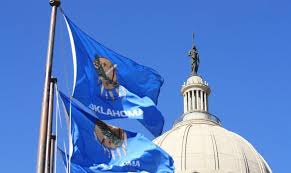Lawmakers get First Pay Raise in 20 Years
Mike Seals - November 16, 2020 10:32 pm

OKLAHOMA CITY (AP) — Oklahoma legislators are getting a pay raise after for the first time in more than two decades, even as state agencies face budget cuts amid an ongoing pandemic.
Legislators will see their annual salaries jump to $47,500 from $35,021. The 35% pay increase will take effect Wednesday, The Oklahoman reported.
The Legislative Compensation Board, which is made up of non-elected officials, approved the raises last year. The board is appointed by the governor, House speaker and Senate pro tempore and meets in odd-numbered years.
The raises are funded through the $7.7 billion state budget that took effect July 1. The budget includes cuts of 4% for most state agencies.
“The politics of it are awful,” said House Majority Floor Leader Jon Echols. “The optics of it are bad, so the question becomes why did the legislative compensation committee do it? Well, they met pre-COVID.”
Echols, a Republican said he wouldn’t mind if they lowered the pay next time or if they kept it the same. But he was firm in his stance that the board should not raise it again in 2021.
The board, which met in 2019, had all new members and sought to reverse a previous legislative pay cut that they saw as punitive. In 2017, the board cut legislators’ pay by about $3,400, which may have been because of the political gridlock at the Capitol.
The National Conference of State Legislatures considers the Oklahoma Legislature to be a hybrid, somewhere between part-time and full-time. Legislators working at “hybrid” legislatures earn an average of $30,485 per year.
Average legislator pay is $38,370 across the 41 states that pay legislators per year, according to the association.
The compensation board also approved a stipend check increase for legislative leaders. Stipends for House Speaker Charles McCall and Senate Pro Tem Greg Treat increase from $16,354 to $17,932. Checks for other leaders will jump to $12,364 from $11,276.
When the pay raises are annualized, the total cost will be about $2.4 million. The cost is lower this year because the raises are not in effect for the full fiscal year.



